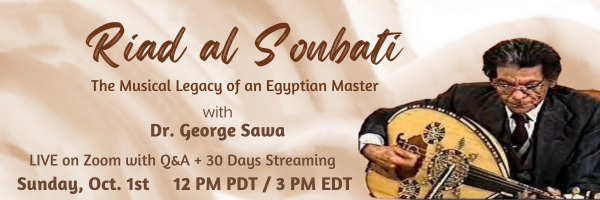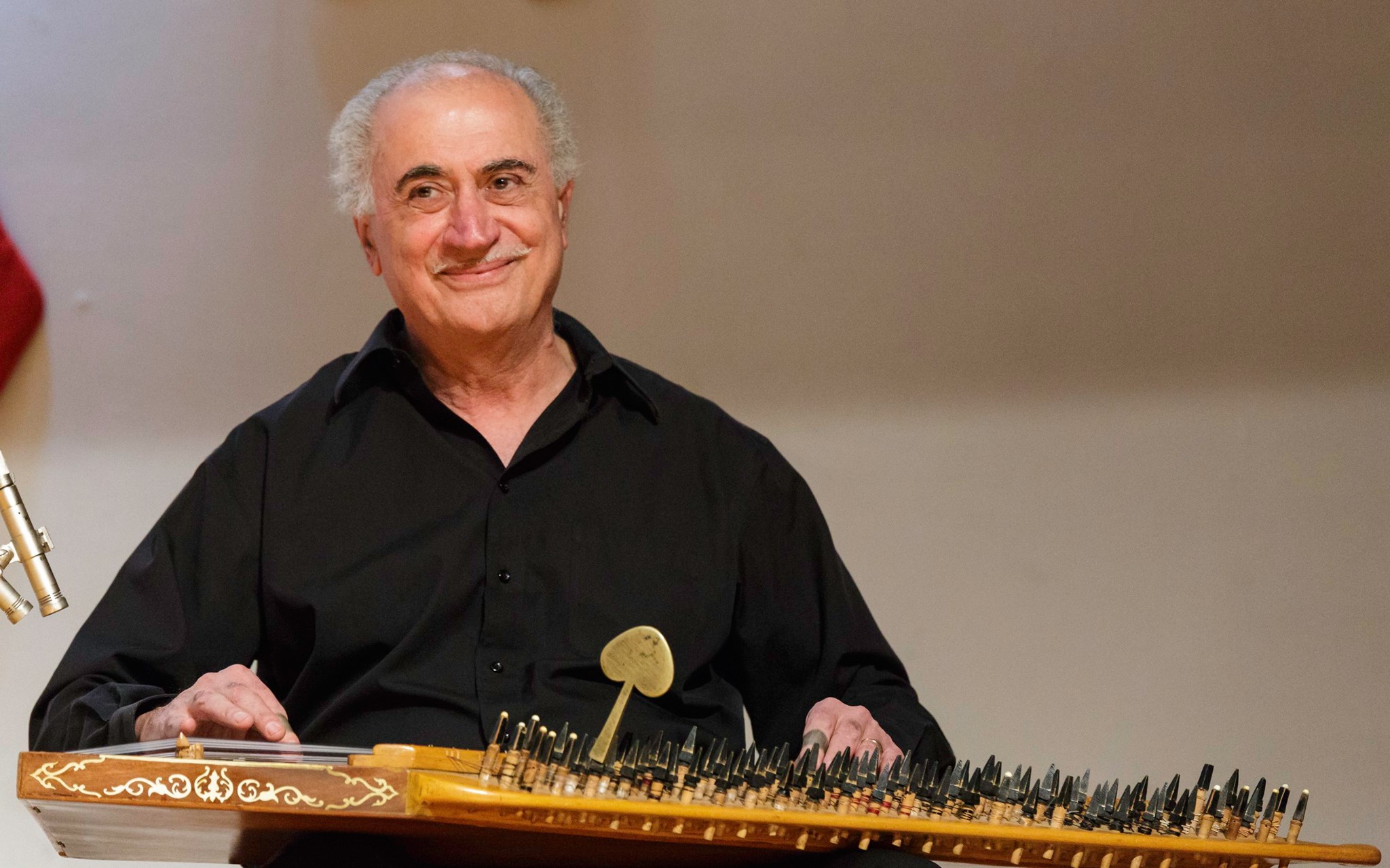“Riad al Sonbati“
with Dr. George Sawa
LIVE Sunday, October 1st 12:00 PM PDT / 3:00 PM EDT
+ 30 Days streaming access
Riad al Sonbati was one of the most productive and significant Egyptian composers of the 20th century. His career spanned from the 1930’s through the 1970’s, during which time he wrote a wide variety of pieces from religious to operettas to movie soundtracks to simple taqtuqas. He composed for all the major singers of his time, including Warda, Asmahan, Munira al-Mahdiyya and of course, Oum Kalthoum.
Sonbati wrote more pieces for Oum Kalthoum than any other composer, nearly 90! His career rose alongside hers. The two worked together from the mid 1930’s through the end of her career. Because he was also a poet as well as a brilliant and original composer, she called him “The Genius”.
Sonbati’s musical style is very sophisticated and evokes a strong emotional/tarab effect on the listener or dancer. While Zakariyya Ahmad got his inspiration from the Moulids and sufi chanters, and Mohammed Abdel Wahab got some inspiration from Western music, Riyad seems to have drawn primarily from his unique inner fountain of creativity, which is what makes his music stand out to this day.
In this talk, Dr. Sawa will take us through 3 songs by Sonbati. He will break down the structure, rhythms and features of the melody. He will also help us understand the meaning of the songs and how the music conveys that meaning, so we can bring that dimension to our dance.
Registration is $25 and includes the live presentation and streaming access for 30 days.
Dr. George Sawa
George Sawa was born in Alexandria, Egypt. He studied qanun, theory and voice at the Higher Institute of Arabic Music. After immigrating to Canada, he studied ethnomusicology at the University of Toronto, and obtained his doctorate in historical Arabic musicology. He has taught graduate and undergraduate courses on medieval, modern ,and religious music of the Middle East at the University of Toronto and at York University. He is the author of Music Performance Practice in the Early Abbasid Era, 732-320 AH/750-932 AD and Theories of Rhythms in Arabic Writings, 750-950 AD (The Institute of Mediaeval Music, Ottawa, 2004 and 2009). He has published many articles on Arabic music in refereed journals and encyclopedias, and is frequently invited to give lectures and concerts worldwide. In 2005 he received the prestigious Lifetime Achievement Award from the Egyptian Ministry of Culture for his research in Arabic music history. George has been the musical director for several productions of the Toronto-based Arabesque Dance Company, and has taught dancers at the Arabesque Academy and Hannan’s Bellydance Studio in Toronto. His CD, The Art of the Early Egyptian Qanun, Vol. 7,was nominated for a JUNO Award in World Music in 2009. A subsequent volume, The Art of the Early Egyptian Qanun, Vol. 2, was released in 2009. In the two CDs accompanying the present volume, George plays qanun, semsemeyya, rababa, nay, salameyya, arghul, tar and mazhar.



